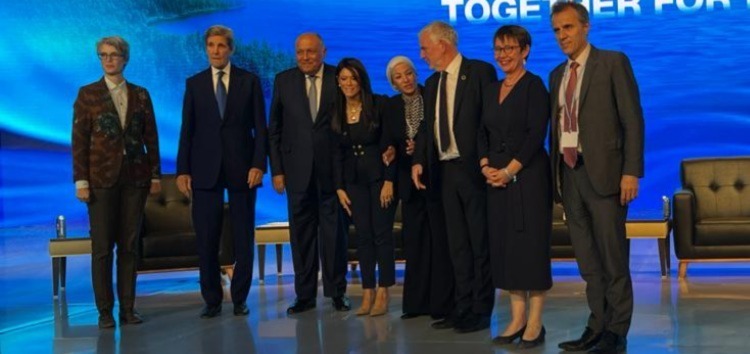
Water Conservation: 7 Simple Ways to Save Water at Home and in Your Business
Water is one of our most precious resources, yet it is often wasted without thought. ...

Egypt confirmed its aim to accelerate its deployment of renewable energy, delivering clean, affordable and reliable power for its citizens by bringing forward its 42 percent renewable electricity target from 2035 to 2030.
“I’m pleased to announce today, alongside the European Union and Germany, a $ 500 million package to finance and facilitate Egypt’s transition to clean energy,” Biden told an audience at COP27.
Egypt has world-class renewable energy resources and is close to markets in Europe and Asia, giving it the potential to transform its own energy sector and become a global hub for green fuels and products.
“This deal shows again how a multi-partner approach and focused effort can quickly deliver higher ambition. We know Egypt wants to move faster to deploy renewables and accelerate the energy transition. But they need to know that donors and development partners are going to be there to help them through it.
Egypt has now agreed to quadruple their deployment rate and reflect that in a revised NDC. The United States, with the Germans anchoring it, made the commitment that we’re going to help them with concessional financing to get the first 10 GWs done quickly and cost effectively.
“I think this partnership is one way to overcome the impediments to faster action. And I hope others follow. I know we stand ready,” US Special Presidential Envoy for Climate John Kerry said.
The NWFE-Energy Pillar is expected to unlock at least US$ 10 billion in private investment to install 10 GW of solar and wind energy by 2028. The initiative will also include the retirement of 5 GW of inefficient fossil-fuel capacity by 2025, leading to a substantial reduction in natural gas consumption and greenhouse gas emissions, estimated at around 17 million tonnes of CO2e per year.
In addition to mobilizing support from the United States and Germany, the initiative is planning to deploy more than $ 300 million in grant and concessional finance from the European Commission, France, the Netherlands, Denmark and the United Kingdom, as well as donors to the EBRD’s High Impact Partnership on Climate Action (Austria, Finland, the Netherlands, Spain, Switzerlan
In addition to taking the lead role in supporting Egypt in implementing the NWFE energy pillar, the EBRD has committed $ 1 billion of private renewable finance, $ 300 million in sovereign finance and grants of $ 3 million from its Shareholder Special Fund.
Speaking on a high-level panel to mark the NWFE energy pillar, EBRD President Odile Renaud-Basso said “We are very proud to be Egypt’s partner in this innovative country-led platform, which blends government commitment, international support and private finance to accelerate a just energy transition.”
“We believe this is a model of how climate finance can be scaled up in Egypt and elsewhere, and we look forward to working closely with the Egyptian government to support the delivery of these high ambitions.”
Egyptian Minister of International Cooperation Rania Al-Mashat said “Egypt’s country platform for the NWFE- نُوَفِّـي, (the Arabic translation of the phrase “fulfilling pledges”), was developed on the back of the announcement of 2050 Country Climate Strategy and the Nationally Determined Contributions (NDCs).
“Leveraging Egypt’s partnerships with multiple stakeholders, the country has been leading efforts to mobilise finance, avail of technical assistance and catalyse private investment through innovative financing modalities, including blended finance, for NWFE- نُوَفِّـي projects.
“This provides opportunities for mobilizing climate finance and private investments to support Egypt’s green transition, reflecting the interlinkages and complementarity between climate action and development efforts.
“This is realized through the design, structuring and preparation of concrete and implementable climate action projects.”
اترك تعليقا